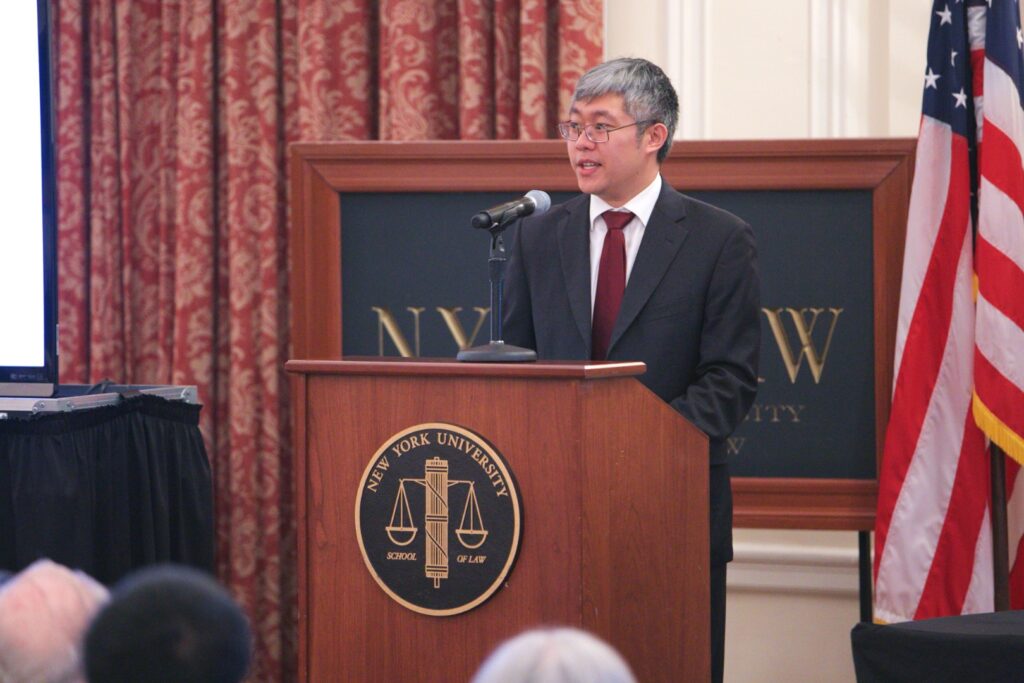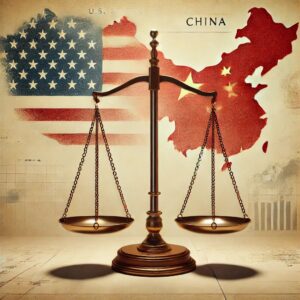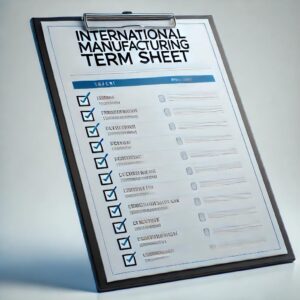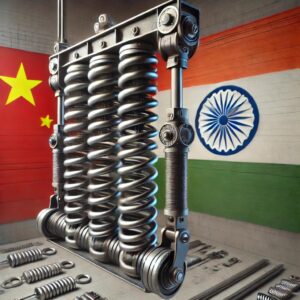I just learned that Alvin Y.H. Cheung has died, at the far too young age of 38.
Who was Alvin Cheung, and why, after nearly 20 years of this blog, is he the first person to receive a memorial here?
Alvin Cheung was a true scholar. By this, I mean he was the sort of scholar who dug deep, came up with great insights, and always told the truth, wherever that may lead.
I’m writing about him today because he greatly influenced my views on China and Hong Kong. In 2019, I predicted the end of Hong Kong as we knew it. At that time, most people actually believed that the CCP would allow Hong Kong to maintain its independence and that it could continue functioning as a worldwide business center. Based in large part on my email conversations with Mr. Cheung, I became convinced there was virtually no chance this would be the case, and I wrote about it in a post titled Hong Kong for International Business: Stick a Fork in It. I received more hate mail from that post—by far—than any I’ve written before or since. I also received a supportive email from Mr. Cheung that meant the world to me.
His obituary, explains his importance and his prescience (better than I ever could), and I quote liberally from it below:
Alvin Y.H. Cheung is dead, scholar of authoritarianism and the rule of law
Alvin Y.H. Cheung, a faculty member at Queen’s University in Kingston, Ontario who warned of China’s threat to Hong Kong years before a subsequent crackdown, died July 29 at Kingston General Hospital following a brief illness.
A 2020 doctoral graduate of the New York University School of Law, Mr. Cheung was married to Alyssa King, an assistant professor at Queen’s and expert on comparative civil procedure and courts. The couple and their children lived in Kingston.
A Canadian citizen of Hong Kong descent, Mr. Cheung, 38, was a Hong Kong barrister in 2009 when he noted the insistent and steady encroachments by Beijing on the former British colony, especially through the city’s supposedly independent common law courts. As he studied how authoritarian governments manipulate law to seize and retain power, Mr. Cheung wrote tirelessly about the coming downfall of legal and civil rights in his hometown years before Beijing seized control.
Mr. Cheung was not satisfied just with sharing his concerns among fellow lawyers and academics. With his characteristic, even caustic wit — he once described Beijing’s intervention in a Hong Kong decree as a political “temper tantrum” — Mr. Cheung told journalists and his social media followers that the Chinese and Hong Kong governments had weaponized law to undermine the city’s autonomy and degrade civil rights. In 2014, after Hong Kong residents occupied a highway to demand democratic elections, Mr. Cheung warned that government officials aligned with Beijing were using prosecutions to suppress free speech and imprison critics. Beijing, he wrote, was guilty of “Abusive Legalism.” (“For My Enemies, The Law’” he jibed.)
Five years later, millions of Hong Kong citizens rose up to stop a bill that would have made people in Hong Kong vulnerable to prosecution in China. Mr. Cheung warned that state officials were using threats to manipulate and pressure Hong Kong judges, inviting a cascade of convictions. A year later, when Beijing forced a sweeping national security law onto the territory, degrading many of its esteemed civil rights and sending numerous activists to prison, Mr. Cheung noted with despair that a regime that wanted to consolidate its hold on power needed only to selectively enforce offenses and gaslight the world about its actions to achieve total control. “Only a highly imaginative reading of the NSL would provide any grounds for optimism,” he wrote.
Mr. Cheung took little pleasure in his role as the Cassandra of Hong Kong who predicted its subjugation by China. As he rued in his dissertation, “Abusive Legalism,” authoritarians destroy democracy and undermine human rights by creatively hiding their manipulations under the cover of law. Among his many examples, he pointed to vague criminal charges, selectively targeted, that invite mass censorship and self-censorship. Rather than using dragnets to round up many people, such governments drown the populace in prosaic offenses. Everyone, he wrote, was “at the mercy of the State.”
When I was in college, I became obsessed with a poem, Beware: Do Not Read This Poem, by Ishmael Reed. I was especially riveted by its final lines:
statistic: the US bureau of missing persons reports that in 1968 over 100,000 people disappeared
leaving no solid clues nor trace only a space in the lives of their friends
Alvin Cheung’s drive to improve the world, to call out tyranny, and his influence will live on. He has left a big space in many lives.
In honor of Alvin Cheung’s legacy, I encourage you to learn more about his work and how we can continue his fight for truth and justice in a world that needs more voices like his.
Please be well.

























